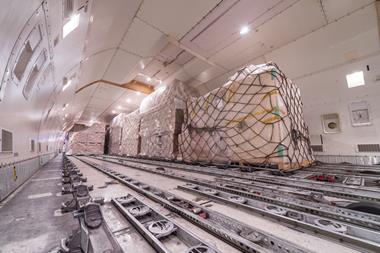MEANINGFUL partnerships may be the new way forward for competing air cargo companies.
When there is too much capacity, when prices are at rock bottom and yields are in decline, when shippers are modal-shifting to sea, when economies of scale are desperately required – maybe that is the time to turn to your sworn enemies in the market – and strike up a synergistic relationship with them.
I’m not talking about (whisper it) price-fixing. This comment is instead about the sharing of risks, investments, expertise, equipment, capacity, market knowledge.
Why shouldn’t one carrier from the USA work closely with a partner from say, Asia, in a shared marketing and operations exercise?
FedEx is already considering this prospect as it looks to reduce its operating costs. The integrator has apparently been talking to legacy carriers about sharing general cargo capacity [not express shipments] on some routes. It makes a lot of sense to have one fully-laden B747-8F flying between, say Tokyo and New York, rather than two half-full, loss-making services.
Such arrangements would go a lot further than the simple interline deals of the past.
The articulate Dr Andreas Otto, board member of Lufthansa Cargo, admits that from the ashes of the last few years’ economic turmoil ‘some unexpected partnerships’ may start to emerge.
There are already possibilities in the pipeline for Lufthansa Cargo this year, he says.
“One of our biggest challenges is the development of carriers in the Middle East,” Otto says. “That’s our biggest threat.” He’s referring to belly rather than freighter capacity.
Though, competing against the likes of quality-focused Emirates is healthier than vying with those ailing rivals, which offer cut-price deals just to survive, he reckons.
Lufthansa Cargo is seeking one or two partners from the cargo industry to share belly space on passenger aircraft and potentially also freighter capacity. “We’ve considered this for quite some time, but this year we are pretty sure it will happen,” he predicts.
Of course, it only works if both parties share the same aspirations and quality standards. And that may be a big sticking point.










